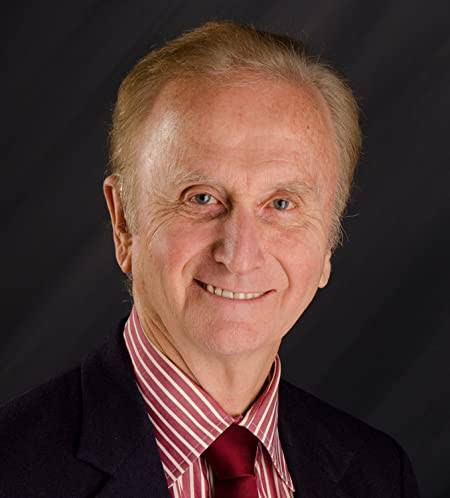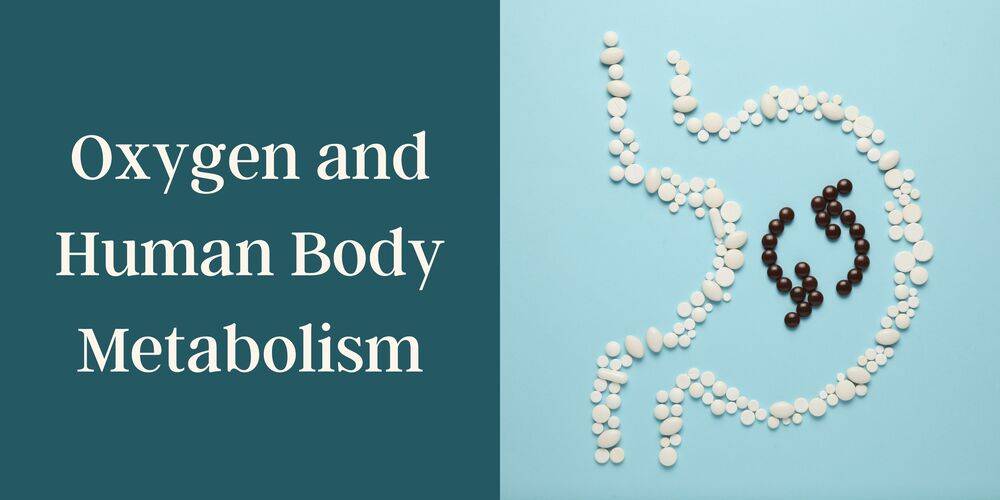
Why Does Misdiagnosis Occur?
0 Comments
Why Does Misdiagnosis Occur?
DEC 30, 2023, By Michael Grant White
Trouble getting answers to your symptoms? If your treatment seems ineffective, have you ever wondered about the possibility of a misdiagnosis? This article explains the causes and contributing factors of misdiagnosis.

There are many ways that a diagnosis can go wrong. There may be contributing factors from any of the players:
1. Patient/Client
Self-diagnosis: The most likely way for a patient/client to contribute to a misdiagnosis is attempting to do so themselves without health professional advice. That is akin to using your body as a laboratory and you the person with the white coat. LOL. Reminds me of the old saying that a person who acts as his or her own attorney has a fool for a client. And what a boon for peddlers to sell you whatever.
Not reporting symptoms: Sometimes patients/clients don't tell the health professional everything. Sometimes, symptoms are embarrassing. Other times, you might think they're not worth mentioning. Some people won't mention a symptom unless the health professional asks and assume it must be irrelevant if the health professional doesn't ask about it directly.
Always tell the health professional everything, no matter how trivial, no matter if you believe it is unrelated. Let the health professional have all the facts. Now, see if they include how you look at breathing, given what you learn in the Optimal Breathing Self-Mastery Kit.
For Breathing Tests, Click Here. Then, see what YOU learn about THEM. You may be shocked at their ignorance about breathing.
Failure to complete ordered tests: In some cases, patients/clients don't get diagnostic tests done, even when a health professional has ordered the tests. This can occur due to oversight, complacency, laziness, stresses of life such as being locked in your home, or embarrassment.
For example, one contributing factor to delayed diagnosis of colon cancer is patient/clients' perceived embarrassment over tests such as colonoscopy and sigmoidoscopy or getting a series of colonics and learning what is “seen”.
2. Health Professional
Health professionals know only common diseases: There are more than 20,000 documented human diseases, and probably many more undocumented ones, and health professionals only know the most common. And how many of the undocumented ones disappear or are never present due to proper natural hygiene?
Over-publicized diseases: Any health challenges that get a lot of attention tend to get over-diagnosed. This means that less common health challenges that might have similar symptoms are sometimes overlooked. Add to that the drug industry is very busy creating new ones. Ones that mostly did not exist 75 years ago. Look out for all the side effects that create side effects that create other side effects and further confuse what might be rather simple.
Related Reading: Prescription Drugs: Most Are Harmful, Many Are Deadly
Different health professional skill levels: Not all health professionals are alike. A general health practitioner may be well-versed in common health challenges but not in rarer areas that a specialist would know better. Or a completely different perspective, such as Traditional Chinese Medicine of herbs, acupuncture, massage, Qigong or Ancient India's Ayurveda.
Health professional bias: All health professionals are human and have biases. They can have the "hammer-and-nail" bias: if you have a hammer, everything looks like a nail. If they see a certain disease frequently, they will diagnose it frequently and might make an error if it is not that disease or health challenge but something with similar symptoms.
This tendency to go with what is familiar is also seen in treatments, where a surgeon will recommend surgery more often, but an endocrinologist will recommend pills more often. And very few will recommend a fast or liver cleanse.
Saving you money : Though rare these days, because many also get paid when you take more tests, some health professionals will avoid tests, assuming that you don't want to pay extra costs. Sounds good, maybe. For example, if there is a very rare condition, say 1-in-200, should your health professional get you to test for it? Some health professionals won't even tell you about this type of test.
This is supposed to work fine for the majority but fails for the very large percentage who might have a second health challenge or no challenge that can‘t be addressed with safe non-drug approaches.
Lack of time: It really is quite sad how little time most traditional health professionals will typically spend with a patient/client. Most use something like a 15-minute appointment or less.
That doesn't give the health professional much time to ask a few questions, make a tentative analysis, order some tests to confirm it, and then answer some questions from the patient/client. We'd all like to think that, later, the health professional went and double-checked a supposed set of symptoms in their books, or with other specialists and consulted the latest research about how to address it correctly, but it seems rather unlikely!
In reality, too many health professionals have to shoot from the hip. My holistic cardiologist spends 2+ hours or so with all his clients a few times a year. Love the guy.
Behavioral/mental symptoms that are hard to analyze: Some types of symptoms are just hard to understand. This is particularly true of those regarding emotional or mental well-being, including the ones influenced by Optimal breathing pattern disorder or what I call UDB.
3. Tests (Laboratory or Pathology tests)
Human errors: Of course, a simple human error can occur in any of the various tests. For example, samples could get contaminated or mixed up, or the test procedure might get done improperly. The practitioner may be new at the game. Some tests require a visual inspection, such as cell tests for cancer (e.g. Pap smears), and rely on the human judgment of the person inspecting them. Naturally, errors may not be rare.
Error margins- False positives, False negatives: All laboratory tests, especially ones like for COVID-19, have known conditions under which they fail. They can either fail with a false positive, wrongly indicating that you have a condition when you don't, or a false negative, wrongly indicating you don't when you actually do.
Either way, it will get you the wrong diagnosis. If you read the documentation about each test, you'll see that there are known limitations for each test. Some tests fail on some people because of the special features of a person or their situation. Some tests for one symptom will fail if you have some other rare health challenges.
There are a few world-class health professionals, such as Dr.Bruce West D.C., who advise strongly against most testingas being too expensive and steering people into costly and unnecessary drug use or surgical procedures and overlooking things that can be addressed with simple diet, supplement, and lifestyle changes.
Think about the fact that virtually no medical doctor will prescribe a fast or liver cleanse, both of which are, in my opinion, two of the most powerful healing tools there are.
4. Fake News,
5. Fads,
6. Politicizing junk Science
Learn to Breathe Better with The Optimal Breathing Mastery Kit.

Meet Mike White
Meet Michael Grant White, the Optimal Breathing Coach and get actionable insights on your breathing development, health and longevity
Oxygen and Human Body Metabolism
Sept 26, 2023, By Michael Grant White

Metabolism is defined as "taking food and converting it to energy." Our bodies need oxygen on a moment-to-moment basis. They will begin to deteriorate rapidly without adequate supply. The efficiency of oxygen conversion into cellular energy is key to the use of its energy; therefore, oxygen has, in effect, its own metabolism.
Oxygen is a lot like food.
Improving oxygen intake, uptake, and assimilation is critical to the body’s energy and as an inhibitor to disease and decay. Movement invites the need for more oxygen, but to move uses up oxygen. To digest and assimilate food uses up oxygen. Probably every bodily function uses up oxygen in varying degrees.
Muscular activity accelerates the rate of oxygen usage. Taking in large quantities of oxygen via large expenditures of physical effort can condition the organism to function with more efficiency to be more durable. However, this process often causes distress to the organism. Given no need to defend, durability does not ensure longevity.
Where breathing comes into play is the balance between stress and distress. A certain level of stress can be helpful and beyond that harmful. Is stress needed to ensure sufficient oxygen metabolism? Depends on the physical activity and level of skill or endurance required; Slaying dragons, yes; walking in the sunshine, much less so.
As the activity increases in stress towards distress, we need the breathing to stay deep and easy even more and more.
Why is that?
Stress can condition, but that is not the key to longevity. Stress that conditions are most often harmful. Maximum energy intake with minimal energy. If stress and conditioning helped the organism survive, then why do athletes not live to at least 120?
The key to the healthiest conditions from a longevity standpoint is that the way we breathe is our primary stress modulator expenditure is the key to longevity. Dynamics of living often require action. There is an oxygen cost of living.
This implies that balance might be extremely relevant. A balance between depth, ease, and smoothness of breathing and cellular replenishment; ease, flow, and regeneration.
Moderate stress can require the organism to adapt to higher requirements. Taking in as much oxygen as possible with the minimal expenditure of oxygen can aid in oxygen usage efficiency/metabolism.
“Physical training and practice increase ventilatory threshold, anaerobic threshold, and mechanical efficiency,” but it does not ensure longevity.
“Regular body movement with increased breathing action aids to adaptation toward increased functional efficiency in the uptake and utilization of oxygen from the blood”1. Fast movement will condition you to act fast. The slow movement will condition you to act slowly. Fast is more stressful than is slow to moderate. Faster movement requires faster breathing. Slow movement allows for slower breathing. Metabolizing our oxygen food takes a certain amount of time.
Most of us do not take the time to breathe.
Optimal Breathing development programs require little to no movement, are done most often slowly, and therefore provide significantly high efficiencies in building oxygen reserves and aiding in oxygen metabolism.
Here is the list of priorities from my perspective. You can also create your own program from this list or choose from several programs listed at the end of this page.
Learn to Breathe Better with The Optimal Breathing Mastery Kit.

Meet Mike White
Meet Michael Grant White, the Optimal Breathing Coach and get actionable insights on your breathing development, health and longevity



